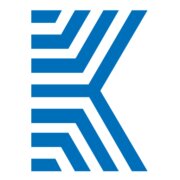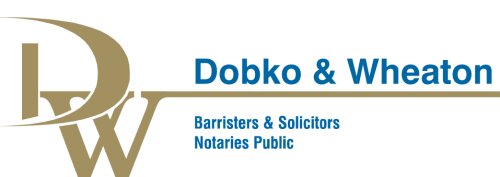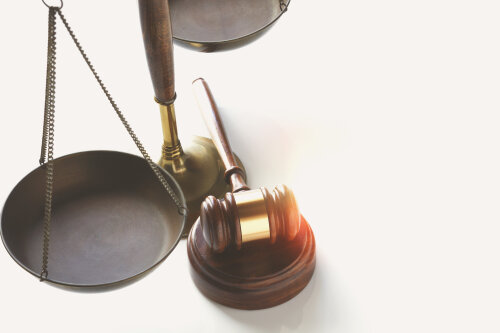Best Drugs & Medical Devices Lawyers in Canada
Share your needs with us, get contacted by law firms.
Free. Takes 2 min.
Or refine your search by selecting a city:
List of the best lawyers in Canada
About Drugs & Medical Devices Law in Canada
Drugs and medical devices are essential components of Canada's healthcare system, aimed at maintaining public health and safety. The regulation of these products is primarily overseen by Health Canada, a federal department responsible for national public health. This involves the approval, monitoring, and enforcement of laws related to therapeutic products. Canadian laws require stringent checks and balances to ensure that drugs and medical devices meet safety and efficacy standards before they are made available to the public. These regulations are designed to protect patients and healthcare users, while also encouraging innovation in the pharmaceutical and medical device industries.
Why You May Need a Lawyer
Engaging a lawyer with expertise in drugs and medical devices can be crucial in several situations, including:
- Product Liability Claims: If a drug or medical device has caused harm or injury, a lawyer can help in filing a lawsuit for compensation.
- Regulatory Compliance: Companies involved in the development or sale of drugs and medical devices must navigate complex regulatory requirements. Legal advice can help ensure compliance with these laws.
- Patents and Intellectual Property: Protecting medical innovations through patents requires legal expertise to handle applications and disputes.
- Fraud and Misrepresentation: Legal issues may arise if a company falsely represents the safety or efficacy of its products.
- Import/Export Violations: Legal assistance may be needed in cases involving violations of import/export laws governing drugs and medical devices.
Local Laws Overview
Canada's regulation of drugs and medical devices involves multiple key laws, including:
- Food and Drugs Act: Governs the safety, labeling, and advertising of food, drugs, cosmetics, and medical devices.
- Controlled Drugs and Substances Act: Addresses the control of substances that can be abused, detailing the framework for legal control and penalties.
- Patent Act: Provides patent protection to inventors of new drugs and medical devices.
Health Canada plays a pivotal role in the approval process for new drugs and medical devices, ensuring that only products meeting stringent criteria for safety and effectiveness are approved for sale in Canada.
Frequently Asked Questions
What is Health Canada's role in drug and medical device regulation?
Health Canada is responsible for assessing the safety, efficacy, and quality of drugs and medical devices before they are authorized for sale.
How does the approval process for drugs work in Canada?
Drug approval in Canada involves a thorough review of clinical trials, labeling information, and manufacturing processes to ensure the drug's safety and effectiveness.
What are the implications of off-label drug use?
Off-label drug use, when a drug is used for an unapproved indication, can carry risks and may have legal implications if complications arise.
Can I sue a pharmaceutical company if a drug has harmed me?
Yes, individuals can file product liability lawsuits against pharmaceutical companies if a drug has caused injury or harm.
What should I do if I suspect a medical device is malfunctioning?
If a medical device is malfunctioning, you should report it to Health Canada and consult a lawyer for potential legal actions.
Are there specific laws for generic drugs in Canada?
Generic drugs must meet the same safety and efficacy standards as brand-name drugs, and their introduction is governed by specific provisions related to patents.
What is a Notice of Compliance (NOC)?
An NOC is a certification from Health Canada indicating that a drug or device complies with Canadian regulations and is authorized for sale.
What kind of penalties can be imposed for violating drug laws in Canada?
Penalties can include fines, product recalls, and even criminal charges, depending on the severity and nature of the violation.
How can companies protect their innovations in drugs and medical devices?
Patents and intellectual property laws offer protection, ensuring exclusive rights to the sale and distribution of the innovation.
What are clinical trials, and why are they important?
Clinical trials are research studies performed in humans to evaluate the safety and effectiveness of a new drug or medical device.
Additional Resources
For those seeking further information, the following resources can be valuable:
- Health Canada
- Canadian Agency for Drugs and Technologies in Health (CADTH)
- Patented Medicine Prices Review Board (PMPRB)
- Canadian Bar Association - Health Law Section
Next Steps
If you need legal assistance regarding drugs and medical devices, consider the following steps:
- Evaluate your situation to clearly understand your needs.
- Research and reach out to lawyers specializing in drugs and medical devices law.
- Consult multiple legal professionals to find one that fits your requirements and budget.
- Gather all relevant documentation, including medical records, trial data, and communications with regulatory bodies.
Seeking legal advice early can help navigate complex situations and protect your rights effectively.
Lawzana helps you find the best lawyers and law firms in Canada through a curated and pre-screened list of qualified legal professionals. Our platform offers rankings and detailed profiles of attorneys and law firms, allowing you to compare based on practice areas, including Drugs & Medical Devices, experience, and client feedback.
Each profile includes a description of the firm's areas of practice, client reviews, team members and partners, year of establishment, spoken languages, office locations, contact information, social media presence, and any published articles or resources. Most firms on our platform speak English and are experienced in both local and international legal matters.
Get a quote from top-rated law firms in Canada — quickly, securely, and without unnecessary hassle.
Disclaimer:
The information provided on this page is for general informational purposes only and does not constitute legal advice. While we strive to ensure the accuracy and relevance of the content, legal information may change over time, and interpretations of the law can vary. You should always consult with a qualified legal professional for advice specific to your situation.
We disclaim all liability for actions taken or not taken based on the content of this page. If you believe any information is incorrect or outdated, please contact us, and we will review and update it where appropriate.
Browse drugs & medical devices law firms by city in Canada
Refine your search by selecting a city.















